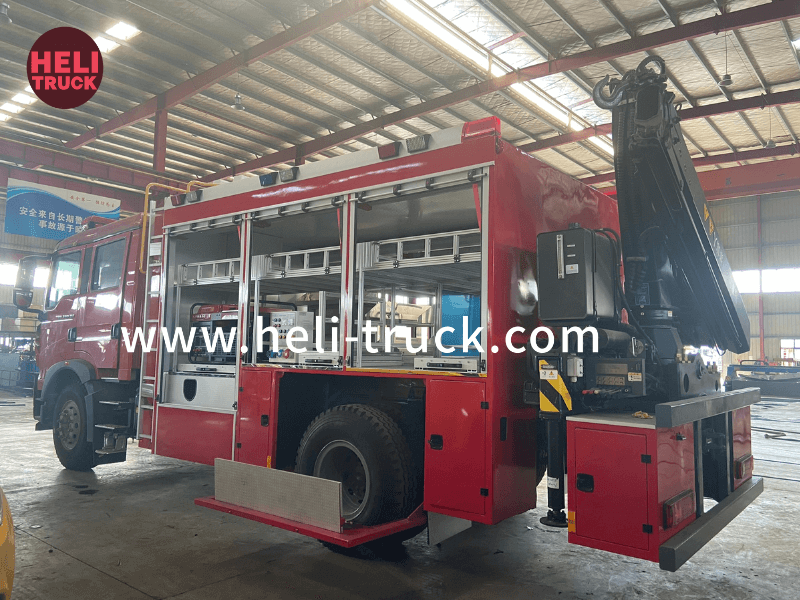Introduction
Garbage compactor trucks play a vital role in waste management systems, efficiently collecting and compacting waste to reduce the volume and optimize transportation. These specialized vehicles are essential for maintaining cleanliness and hygiene in urban and rural areas. One of the key considerations for waste management companies and municipalities is the operating costs associated with garbage compactor trucks. In this article, we will explore the features and technologies that contribute to low operating costs in garbage compactor trucks, as well as best practices for maximizing efficiency.
Chapter 1: Understanding Garbage Compactor Trucks
Before delving into the factors that contribute to low operating costs, it is essential to understand the basic components and functions of garbage compactor trucks. These vehicles typically consist of a cab, chassis, compactor body, and hydraulic system. The compactor body is equipped with a loading hopper, compaction mechanism, and storage compartment for compacted waste.
Garbage compactor trucks are available in various sizes and configurations, ranging from small rear-loading compactors to large front-loading or side-loading trucks. The choice of truck depends on the volume of waste generated, the type of waste collection route, and the specific requirements of the waste management operation.
Chapter 2: Features for Low Operating Costs
Several features and technologies contribute to reducing the operating costs of garbage compactor trucks. https://www.heli-truck.com/best-garbage-truck-brands-a-detailed-comparison/ include:
1. Lightweight Materials: Garbage compactor trucks constructed with lightweight yet durable materials, such as aluminum or high-strength steel, offer improved fuel efficiency and reduced wear and tear on components.
2. Efficient Hydraulic Systems: The hydraulic system is a critical component of garbage compactor trucks, responsible for powering the compaction mechanism. Modern trucks are equipped with efficient hydraulic systems that minimize energy consumption and maintenance requirements.

3. Automated Controls: Automated controls and monitoring systems help optimize the operation of garbage compactor trucks, reducing human error and maximizing efficiency. These systems can adjust compaction pressure, monitor fuel consumption, and provide real-time diagnostics.
4. Eco-Friendly Features: Some garbage compactor trucks are designed with eco-friendly features, such as low-emission engines, regenerative braking systems, and alternative fuel options. These features not only reduce operating costs but also contribute to environmental sustainability.
5. Easy Maintenance: Garbage compactor trucks with accessible components and simplified maintenance procedures help reduce downtime and repair costs. Regular maintenance schedules and proactive servicing can extend the lifespan of the vehicle and its components.
Chapter 3: Cost-Effective Practices
In addition to the features mentioned above, adopting cost-effective practices can further reduce the operating costs of garbage compactor trucks. Some of these practices include:
1. Route Optimization: Planning efficient waste collection routes can minimize fuel consumption, reduce vehicle wear, and maximize the capacity of garbage compactor trucks. Utilizing route optimization software and data analytics can help identify the most efficient routes based on factors such as traffic conditions, waste volume, and collection frequency.
2. Training and Education: Providing comprehensive training to drivers and operators on proper vehicle operation, maintenance procedures, and safety protocols can improve efficiency and reduce the risk of accidents or breakdowns. Well-trained staff can also identify issues early and address them before they escalate.
3. Regular Inspections: Conducting regular inspections of garbage compactor trucks to identify potential issues, such as leaks, worn-out components, or hydraulic system malfunctions, can prevent costly repairs and downtime. Implementing a preventive maintenance program can extend the lifespan of the vehicle and ensure optimal performance.
4. Monitoring Fuel Consumption: Monitoring fuel consumption and implementing fuel-saving strategies, such as reducing idle time, maintaining proper tire pressure, and minimizing aggressive driving, can significantly reduce operating costs. Tracking fuel efficiency metrics and analyzing data can help identify areas for improvement.
Chapter 4: Case Studies and Success Stories
To illustrate the effectiveness of garbage compactor trucks with low operating costs, we present case studies and success stories from waste management companies and municipalities that have implemented cost-saving measures and efficient practices.
Case Study 1: City of Greenfield
The City of Greenfield, a mid-sized municipality, invested in a fleet of modern garbage compactor trucks equipped with automated controls and lightweight materials. By implementing route optimization software and conducting regular maintenance inspections, the city reduced fuel consumption by 15% and maintenance costs by 20% within the first year of operation.
Case Study 2: Waste Management Solutions Inc.
Waste Management Solutions Inc., a leading waste management company, introduced eco-friendly garbage compactor trucks powered by alternative fuels. By training drivers on fuel-saving techniques and monitoring fuel consumption data, the company achieved a 25% reduction in operating costs and a 30% increase in overall efficiency.
Chapter 5: Conclusion and Future Trends
In conclusion, garbage compactor trucks with low operating costs are essential for waste management operations seeking to maximize efficiency and minimize expenses. By incorporating lightweight materials, efficient hydraulic systems, automated controls, and cost-effective practices, waste management companies and municipalities can achieve significant cost savings and environmental benefits.
Looking ahead, future trends in garbage compactor truck technology may include advancements in electric-powered vehicles, smart sensors for real-time monitoring, and enhanced data analytics for predictive maintenance. By staying abreast of these developments and continuously improving operational practices, waste management organizations can further enhance the sustainability and cost-effectiveness of their operations.
In summary, garbage compactor trucks with low operating costs are a key asset for waste management systems, offering a combination of efficiency, reliability, and environmental stewardship. By leveraging innovative features, adopting cost-effective practices, and embracing emerging trends, organizations can optimize their waste collection operations and contribute to a cleaner, greener future.
